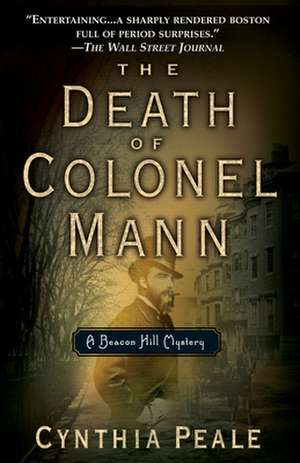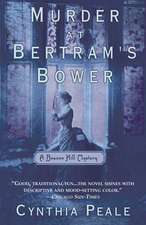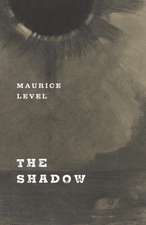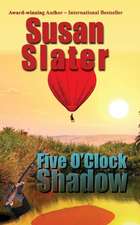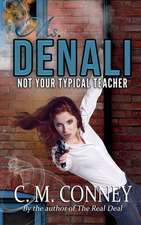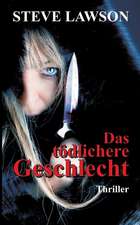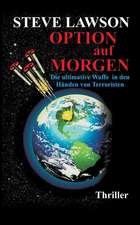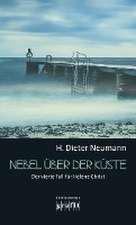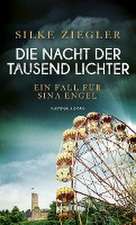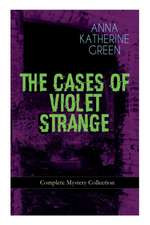The Death of Colonel Mann
Autor Cynthia Pealeen Limba Engleză Paperback – 31 dec 2000
In life, he was the most despised man in Boston, publisher of the town's scurrilous gossip sheet -- and buyer and seller of people's most scandalous indiscretions. Now Colonel William d'Arcy Mann lies on the floor of his fashionable hotel suite, the victim of a single gunshot wound to the heart.
Addington Ames came to recover a packet of love letters written by his young cousin, Val, that had fallen into the blackmailing colonel's possession. But when he discovers Mann's corpse instead, Ames suddenly finds himself at the center of a murder inquiry, his name splashed across the town newspapers.
With Val facing public disgrace -- on the eve of marriage to an impeccable member of Brahmin society -- Ames's only hope is to find the damning missives, which he believes vanished with the killer. With the help of his sister, Caroline, and their boarder, Dr. John MacKenzie, he moves through Boston's most prominent social circles in search of a well-concealed murderer whose final act of violence will leave no life -- highborn or low -- untouched...
From the Paperback edition.
Preț: 114.58 lei
Nou
Puncte Express: 172
Preț estimativ în valută:
21.93€ • 22.90$ • 18.18£
21.93€ • 22.90$ • 18.18£
Carte disponibilă
Livrare economică 22 ianuarie-05 februarie
Preluare comenzi: 021 569.72.76
Specificații
ISBN-13: 9780440613985
ISBN-10: 0440613981
Pagini: 352
Dimensiuni: 140 x 216 x 20 mm
Greutate: 0.45 kg
Editura: dell
ISBN-10: 0440613981
Pagini: 352
Dimensiuni: 140 x 216 x 20 mm
Greutate: 0.45 kg
Editura: dell
Notă biografică
Cynthia Peale is the pseudonym of Nancy Zaroulis, author of Call the Darkness Light and The Last Waltz, among other successful novels. She lives outside Boston, where she is at work on the second in her Beacon Hill mystery series, Murder at Bertram's Bower.
From the Hardcover edition.
From the Hardcover edition.
Extras
Colonel Mann was dead. Of that inconvenient fact there could be no doubt.
He lay sprawled, face up, on the garish Turkey carpet that covered the sitting room floor of his expensive hotel suite. A darkening crimson stain marred the bosom of his boiled white shirt. In his right hand he clutched a handsome silver-knobbed walking stick.
Addington Ames stood quite still, staring at the body. Although he knew the Colonel by reputation--who did not?--he had never met him. For years he had heard it lamented throughout Boston Society that the Colonel was in robust middle age, no more than forty-five or fifty. He will live on and on, people said, spreading his poison, bleeding us dry.
No more. Whatever harm the Colonel had done--and it was very great, Ames knew--he would do no more now.
In the harsh glare of the electric lights, the Colonel's face--fleshy, bearded--looked not robust but old. Already, Death had marked it for his own. Old, thought Ames, and vicious and corrupt, like the man himself.
He turned to glance at his companion, who stood behind him.
"Doctor?" he said. He moved a little to one side so that MacKenzie could step close to the body.
Dr. John Alexander MacKenzie, uncomfortable in the overheated room--in its advertisements, the hotel boasted of its central heating--crouched and felt the Colonel's forehead and then lifted his free hand. "Body's still warm," he said. "No rigor." The Colonel's skin was a sickly shade of blue-gray; his eyes, staring wide, were oddly flat. Dead eyes, thought MacKenzie: circles of black pupil, iris no longer visible. He'd seen eyes like these often enough during his service with the army on the western plains to know instantly when he was looking at a corpse.
Ames grunted. "This is the night when the Colonel held open house each week," he said. "I wonder, given his methods, that he did not keep a bodyguard with him."
Without touching the Colonel's bloodied shirtfront, MacKenzie scrutinized the neat little hole in the fabric to the right of the third gold stud. Then, with difficulty and with the aid of his cane, he stood up. "There is his pistol on the desk," he said, gesturing. "But it looks to be a Smith and Wesson thirty-eight. Too large a caliber for a wound this size." He sniffed; he thought he could smell a faint odor of gunpowder, but he could not be sure because it was overlaid with a heavy, sweet scent that might have been the Colonel's hair pomade--or a woman's perfume.
Ames nodded. "So we may assume that he was not seized with a sudden fit of remorse and driven to kill himself."
"No," replied MacKenzie. "He did not do that. And yet, for the wound to be so accurately placed, the weapon must have been fired point-blank--just outside powder-burn range."
Ames thought about it. "A bold man, then. And someone the Colonel knew well."
"Yes. Perhaps he did have a bodyguard"--MacKenzie flexed his bad knee--"who turned on him?"
"Possibly." Ames looked away, contemplating the middle distance. He was a tall man, markedly taller than his companion, and whippet thin. His black hair was combed back straight from his high forehead; luxuriant dark brows arched over his brilliant black eyes. His nose was sharp and pronounced, his clean-shaven face as long and thin as he himself. He wore a gray Inverness cape over his dark coat and trousers; his neckcloth, of a good gray silk twill, was slightly frayed at the edges, as were the cuffs of his coat. He was two years younger than MacKenzie, who was forty-one.
Ames seemed to have come to some decision. Moving with care, he stepped around the Colonel's body to the ornately carved desk.
MacKenzie, as he always did when he was slightly unnerved, tugged at the end of his mustache. "Should we notify the staff?" he said. "Or the police?"
Ames thought of Deputy Chief Inspector Crippen and his officious, offputting manner. No, he thought. Not Crippen; not yet. "I will speak to the manager when we leave," he said. "But before we do, I want to have a look around."
He tried the drawers on either side of the kneehole; all of them were locked. He paused, lifting his head to listen. He heard no sound. The noise of the city's streets, carriage wheels on cobblestones, the clop-clop of horses' hooves, the jingle of harness, all were muffled by the heavy plush draperies pulled shut against the night. Moreover, the Hotel Brunswick was an imposing structure, solidly built, its walls and doors heavy and thick enough to hide any sound from the other guests' rooms. Or, for that matter, from this lavishly furnished suite--heavily carved, serpentine-back sofa, overstuffed Turkish chairs--where the Colonel had lived.
And died.
There was a door on either side of the room. Ames went to one and opened it. It was a bedroom. The lights were turned on; he went in. He saw another door which, when opened, gave onto a gleaming white-tiled bathroom, a huge tub in a high mahogany surround, tall brass taps on the washbasin. He retreated and opened a door adjacent that revealed a large closet. He glanced at the Colonel's expensive clothing, neatly arranged; then he turned back to the bedroom. In contrast to the opulent sitting room, this was a sparsely furnished, oddly bare chamber, no personal possessions save a silver brush and comb atop the chiffonier. There was no exit, either into the corridor or into another suite.
He returned to the sitting room and tried the other door. It had a bolt that was unshot; nevertheless, it was locked.
He turned to face MacKenzie again. MacKenzie--and that revolting body sprawled on the carpet, seeming as menacing now in death as the man himself had been in life. Alive, Colonel Mann had known many secrets and had profited from them hugely. Now, in death, even though he would profit no more, he held those secrets still.
Ames had come here tonight on a specific errand--a very urgent errand concerning one of those same secrets. Perhaps he could still accomplish it. Pressing his lips together as if to keep himself from gagging, he stepped to the Colonel's body and felt in the pockets of the dead man's green velvet smoking jacket. Nothing. The trouser pockets, however, yielded a heavy gold watch with a finely chased case, half a dozen coins, a gold money clip that held three folded hundred-dollar bills, a silver toothpick--and a key ring with several large keys and one small one.
From the Paperback edition.
He lay sprawled, face up, on the garish Turkey carpet that covered the sitting room floor of his expensive hotel suite. A darkening crimson stain marred the bosom of his boiled white shirt. In his right hand he clutched a handsome silver-knobbed walking stick.
Addington Ames stood quite still, staring at the body. Although he knew the Colonel by reputation--who did not?--he had never met him. For years he had heard it lamented throughout Boston Society that the Colonel was in robust middle age, no more than forty-five or fifty. He will live on and on, people said, spreading his poison, bleeding us dry.
No more. Whatever harm the Colonel had done--and it was very great, Ames knew--he would do no more now.
In the harsh glare of the electric lights, the Colonel's face--fleshy, bearded--looked not robust but old. Already, Death had marked it for his own. Old, thought Ames, and vicious and corrupt, like the man himself.
He turned to glance at his companion, who stood behind him.
"Doctor?" he said. He moved a little to one side so that MacKenzie could step close to the body.
Dr. John Alexander MacKenzie, uncomfortable in the overheated room--in its advertisements, the hotel boasted of its central heating--crouched and felt the Colonel's forehead and then lifted his free hand. "Body's still warm," he said. "No rigor." The Colonel's skin was a sickly shade of blue-gray; his eyes, staring wide, were oddly flat. Dead eyes, thought MacKenzie: circles of black pupil, iris no longer visible. He'd seen eyes like these often enough during his service with the army on the western plains to know instantly when he was looking at a corpse.
Ames grunted. "This is the night when the Colonel held open house each week," he said. "I wonder, given his methods, that he did not keep a bodyguard with him."
Without touching the Colonel's bloodied shirtfront, MacKenzie scrutinized the neat little hole in the fabric to the right of the third gold stud. Then, with difficulty and with the aid of his cane, he stood up. "There is his pistol on the desk," he said, gesturing. "But it looks to be a Smith and Wesson thirty-eight. Too large a caliber for a wound this size." He sniffed; he thought he could smell a faint odor of gunpowder, but he could not be sure because it was overlaid with a heavy, sweet scent that might have been the Colonel's hair pomade--or a woman's perfume.
Ames nodded. "So we may assume that he was not seized with a sudden fit of remorse and driven to kill himself."
"No," replied MacKenzie. "He did not do that. And yet, for the wound to be so accurately placed, the weapon must have been fired point-blank--just outside powder-burn range."
Ames thought about it. "A bold man, then. And someone the Colonel knew well."
"Yes. Perhaps he did have a bodyguard"--MacKenzie flexed his bad knee--"who turned on him?"
"Possibly." Ames looked away, contemplating the middle distance. He was a tall man, markedly taller than his companion, and whippet thin. His black hair was combed back straight from his high forehead; luxuriant dark brows arched over his brilliant black eyes. His nose was sharp and pronounced, his clean-shaven face as long and thin as he himself. He wore a gray Inverness cape over his dark coat and trousers; his neckcloth, of a good gray silk twill, was slightly frayed at the edges, as were the cuffs of his coat. He was two years younger than MacKenzie, who was forty-one.
Ames seemed to have come to some decision. Moving with care, he stepped around the Colonel's body to the ornately carved desk.
MacKenzie, as he always did when he was slightly unnerved, tugged at the end of his mustache. "Should we notify the staff?" he said. "Or the police?"
Ames thought of Deputy Chief Inspector Crippen and his officious, offputting manner. No, he thought. Not Crippen; not yet. "I will speak to the manager when we leave," he said. "But before we do, I want to have a look around."
He tried the drawers on either side of the kneehole; all of them were locked. He paused, lifting his head to listen. He heard no sound. The noise of the city's streets, carriage wheels on cobblestones, the clop-clop of horses' hooves, the jingle of harness, all were muffled by the heavy plush draperies pulled shut against the night. Moreover, the Hotel Brunswick was an imposing structure, solidly built, its walls and doors heavy and thick enough to hide any sound from the other guests' rooms. Or, for that matter, from this lavishly furnished suite--heavily carved, serpentine-back sofa, overstuffed Turkish chairs--where the Colonel had lived.
And died.
There was a door on either side of the room. Ames went to one and opened it. It was a bedroom. The lights were turned on; he went in. He saw another door which, when opened, gave onto a gleaming white-tiled bathroom, a huge tub in a high mahogany surround, tall brass taps on the washbasin. He retreated and opened a door adjacent that revealed a large closet. He glanced at the Colonel's expensive clothing, neatly arranged; then he turned back to the bedroom. In contrast to the opulent sitting room, this was a sparsely furnished, oddly bare chamber, no personal possessions save a silver brush and comb atop the chiffonier. There was no exit, either into the corridor or into another suite.
He returned to the sitting room and tried the other door. It had a bolt that was unshot; nevertheless, it was locked.
He turned to face MacKenzie again. MacKenzie--and that revolting body sprawled on the carpet, seeming as menacing now in death as the man himself had been in life. Alive, Colonel Mann had known many secrets and had profited from them hugely. Now, in death, even though he would profit no more, he held those secrets still.
Ames had come here tonight on a specific errand--a very urgent errand concerning one of those same secrets. Perhaps he could still accomplish it. Pressing his lips together as if to keep himself from gagging, he stepped to the Colonel's body and felt in the pockets of the dead man's green velvet smoking jacket. Nothing. The trouser pockets, however, yielded a heavy gold watch with a finely chased case, half a dozen coins, a gold money clip that held three folded hundred-dollar bills, a silver toothpick--and a key ring with several large keys and one small one.
From the Paperback edition.
Recenzii
"Entertaining ... most agreeable company in a sharply rendered Boston full of period surprises."
-- The Wall Street Journal
"Engaging characters, vividly of their time and place, and yet fighting evils that hurt and endanger us just as much today."
-- Anne Perry, author of Half Moon Street
"A fast-paced and complex tale."
-- Rocky Mountain News
A selection of the Mystery Guild
From the Paperback edition.
-- The Wall Street Journal
"Engaging characters, vividly of their time and place, and yet fighting evils that hurt and endanger us just as much today."
-- Anne Perry, author of Half Moon Street
"A fast-paced and complex tale."
-- Rocky Mountain News
A selection of the Mystery Guild
From the Paperback edition.
